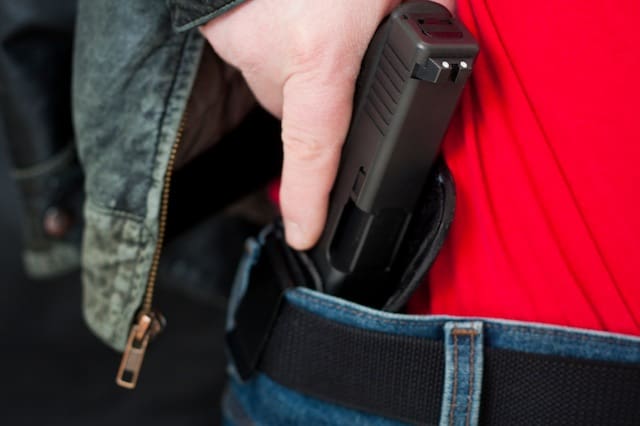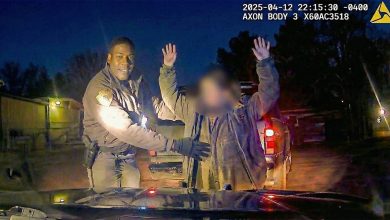FPC Challenges Texas Gun Carry Bans

In its ongoing lawsuit to rid Texas gun owners of laws prohibiting individuals from carrying firearms at certain locations in the Lone Star State, the Firearms Policy Coalition has filed a motion for summary judgment in the case Ziegenfuss v. McCraw.
At issue are Texas laws that bans the carrying of firearms at certain locations, including in any business where alcohol comprises 51% or more of sales (even if the individual is not consuming alcohol), at racetracks and at sporting events.
The FPC’s motion requests that the court declare the laws unconstitutional, grant an injunction to block their enforcement and acknowledge the right of law-abiding Texans to travel armed for self-defense and lawful purposes in ordinary public places.
Three FPC members—Charles Ziegenfuss, David Montgomery and Brian Robinson—have joined the FPC in the litigation.
“We look forward to eliminating these unconstitutional restrictions so that peaceable people in Texas can more fully exercise their right to bear arms,” FPC President Brandon Combs said in a news alert.
The motion states: “Plaintiffs are three law-abiding citizens licensed to carry in Texas and Firearms Policy Coalition, Inc., a non-profit membership association with members licensed to carry in Texas, including the named, Individual Plaintiffs. FPC exists to protect, defend and advance the People’s rights, especially but not limited to the inalienable, fundamental, and individual right to keep and bear arms, and to protecting the means by which individuals may exercise the right to carry and use firearms. The Individual Plaintiffs intend and desire to carry firearms in locations barred by the Carry Bans, and only decline to do so for fear of arrest and prosecution.”
The court document further explains that defendants don’t really have a leg to stand on in arguing for the restrictive laws.
“These criminal carry bans (the “Carry Bans”) violate the Second Amendment,” the motion states. “Based on the State’s answer to Plaintiffs’ complaint, it is unclear whether it intends to defend the Carry Bans. Any such defense would be futile, however. Bruen has already established that the Plaintiffs’ proposed conduct is covered by the plain text of the Second Amendment and therefore ‘presumptively protect[ed].’”
As the motion further explains, the state will have a very difficult task trying to prove that the last stand up to the second part of the Bruen test—historical precedent.
“Texas bears the burden of demonstrating that each of the Carry Bans ‘is consistent with the Nation’s historical tradition of firearm regulation,’” the motion states. “But Texas cannot meet its burden, because there is no historical tradition at and around the Founding of banning firearms in these or analogous locations. As a result, judgment must be entered in Plaintiffs’ favor, and the Carry Bans must be enjoined.”
Ultimately, the FPC motion said summary judgment by the court is the only remedy since Texas cannot prove its case.
“There is no relevantly similar Founding-era regulatory analogue for any of the Carry Bans, let alone an analogue that was widely representative,” the motion concludes. “Despite the fact that venues similar to each of the targeted locations date back to the Founding, there is no well-established, representative tradition of restricting the carry of firearms in any of these locations. Texas’ Carry Bans are therefore inconsistent with the ‘principles that underpin our regulatory tradition’ and that ‘underlie the Second Amendment.’”
Read the full article here








